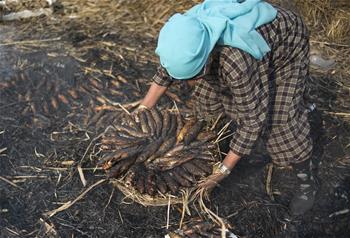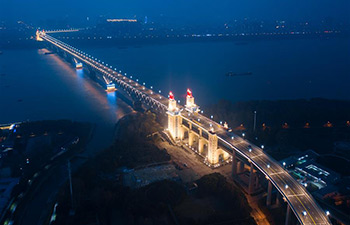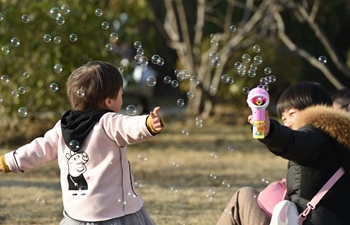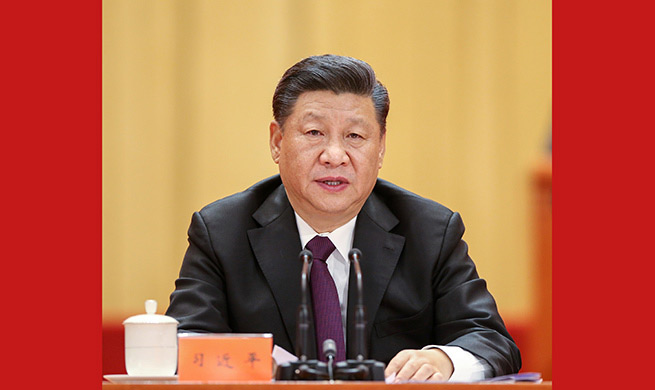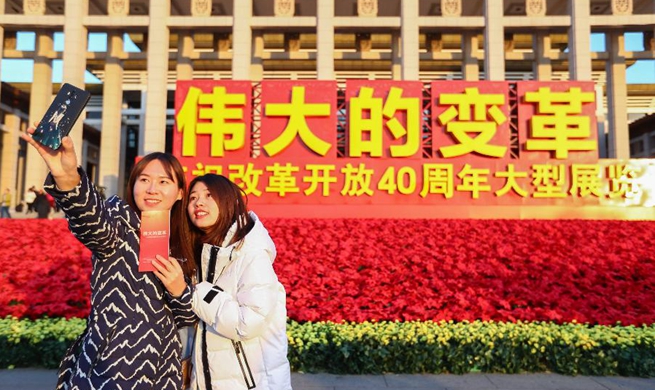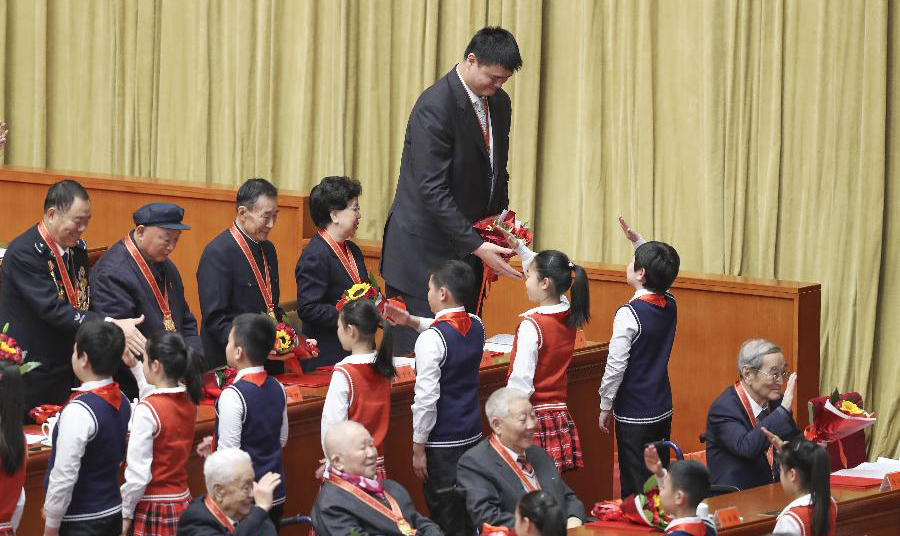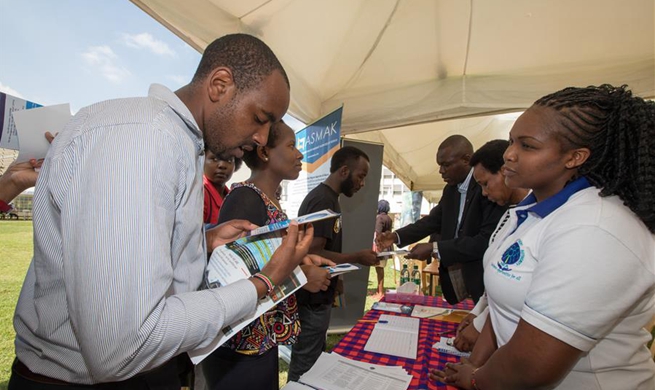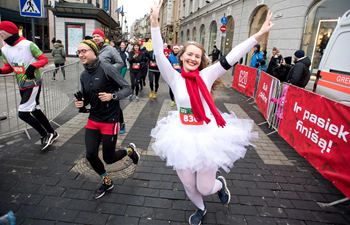BEIJING, Dec. 19 (Xinhua) -- The international football world witnessed the emergence of a new order through the youthful power of France, the success of the UEFA Nations League, the debut of VAR technology at the World Cup, and the new Ballon d'Or winner Luka Modric ending the long dominance of Lionel Messi and Cristiano Ronaldo.
France lifted the 2018 World Cup trophy in Moscow's Luzhniki Stadium in July. France not only won their second World Cup 20 years after their maiden triumph, but also pointed to a bright future with their youthful vitality.
For Croatia, a country of just four million people, the loss was bitter but the team impressed the world and captain Modric was rewarded with the Golden Ball given to the World Cup's best player.
The Video Assistant Referee (VAR) also made its historical yet controversial appearance at the World Cup.
The system was used in case of blatant mistakes from the referee in penalty, goal and red card situations and proved to reduce the number of human mistakes at the World Cup in Russia, although it is still not without its detractors.
Of the 455 decisions that were referred to VAR in Russia, referees opted to consult a pitch-side monitor on 20 occasions and changed their mind 17 times, former referee Pierluigi Collina said. Expecting perfection was unrealistic but the communication between referees and the VAR would no doubt give coaches and fans more confidence in the system going forward.
The VAR system will be used in the Champions League from 2019 onwards and the Asian Football Confederation will use the VAR system at the 2019 Asian Cup in the United Arab Emirates, starting in the quarterfinals.
Besides the carnival in Russia, Europe's new Nations League tournament, starting from September, proved to be quite successful. The Nations League was designed to replace the unpopular friendlies and act as an additional incentive for teams as an extra opportunity to qualify for Euro 2020.
The 55 UEFA teams were split into four leagues. Teams in all four leagues play in the traditional home-and-away round robin format in groups of three or four on six matchdays between September and November.
England, the Netherlands, Portugal and Switzerland have qualified for the finals in June 2019, while Germany has been relegated from the top-tier. The best four teams from each league that don't qualify directly for Euro 2020 go into a play-off series in March 2020, with one spot for the Euro finals available for each league.
2018 shaped up to be a wonderful year for Modric, who ended the ten-year reign of Lionel Messi and Cristiano Ronaldo by winning the Ballon d'Or for the first time. The 33-year-old won the Champions League with Real Madrid and then guided Croatia to the World Cup final in July.
The midfielder was voted player of the tournament. Ronaldo was second in the polling followed by France forward Antoine Griezmann. France's teen star, Kylian Mbappe, was fourth and Messi was fifth in the voting.
Not winning the Ballon d'Or did not dampen the year Mbappe had. The 19 year-old, was the only second teenager to score in a World Cup final after Brazilian great Pele in 1958. The Paris Saint-Germain forward starred as France won the World Cup and won the best young player award in Russia. He was also named the winner of the Kopa Trophy for young player of the year at the Ballon d'Or ceremony.
Spanish La Liga superpower Real Madrid turned out to be the only power refusing the new order in international football world by winning its third consecutive Champions League title in May. Real Madrid became the first side since Bayern Munich in 1976 to win the trophy three years in a row and Zinedine Zidane was the first coach to win three back-to-back titles.
The 45-year-old Zidane then dropped a bombshell, quitting the Spanish giants just days after the victory. The former international decided to leave at the top, saying it was time for a change for himself and the club and admitted he was unsure of his ability to maintain his winning record at Real.







